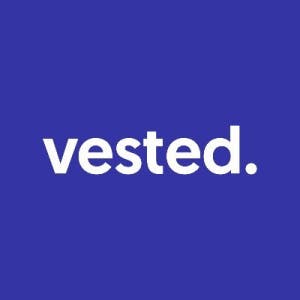Vieje Piauwasdy, Director of Equity Strategy at Secfi, on the future of QSBS
 Conor Gleeson
Conor Gleeson

Background
Vieje Piauwasdy is the Director of Equity Strategy at Secfi. We talked to Vieje to learn more about potential changes rolling out to the Qualified Small Business Stock exclusion and how they might affect startup founders, employees, and investors.
Questions
- Let’s start with what “QSBS” is.
- Would that count for early exercise too?
- This is a benefit that startups have enjoyed for quite some time. What's happening right now?
- Have you heard anything about the taxation of unrealized capital gains? That's something that keeps coming up on Twitter.
- Could you talk about SAFEs, given the rise of SAFEs and with companies now doing them much later? Maybe the simple answer is that QSBS doesn’t apply to SAFEs, but are there things that investors do to try to get the QSBS clock running sooner or that a novice investor should know?
- What's enforcement like in general? There's the law, and then there’s what actually gets enforced. Not that I'm endorsing doing anything untoward, but sometimes you can ask a lot of a company, and you can only get what they give you.
- One strategy I was thinking about when you mentioned stacking is the idea of 1045 rollovers, basically taking one QSBS gain and investing it into another. Could you talk about that process?
- What do you think is going to happen with QSBS? Do you have a sense of what the political climate and outlook is in Washington? What are some of the factors that are going to go into whether or not QSBS goes away?
- Are you noticing any urgency to do anything in your conversations with founders, executives, and employees with QSBS? Are those conversations changing?
- I don't know if you'll be able to talk about it, but an interesting parallel is opportunity zones -- the exemption designed to promote investment in a struggling industry or geography. Could you talk about those in the context of startups?
- Process-wise, you need to verify and document from the beginning that you can qualify for QSBS, and then you hold the stock for five years. When does QSBS status really become top of mind for folks? Is it when there’s a tender offer or IPO or acquisition, and you get the opportunity to sell some of your stock?
- When is the optimal timing for someone in a growth-stage company to take advantage of this, and maybe even partner with someone like you? It seems like there's a window of opportunity when the company is pre-revenue, pre-product, pre-seed, and it costs $100 to exercise early. Once you get past Series A or Series B, the stock becomes more expensive, and my understanding is that when you exercise, even if you exercise early, you have to pay taxes on the delta between your company's 409A valuation and the most recent 409A.
Interview
Let’s start with what “QSBS” is.
QSBS stands for “qualified small business stock.” I won't go into all the technicalities of it -- I don’t want to make this a lecture on the tax code or anything. But long story short is, if you own QSBS, you can exclude 100%, under current law, of that gain when you eventually sell that stock.
Now, this is limited. Effectively, you own QSBS, your company has an exit, and you sell the stock. If it's qualified -- maybe you hold on to it for five years before you sell it -- you can exclude 100% of the gain. You pretty much sell that stock completely tax-free.
It's limited to the greater of $10 million or ten times basis. For those of you who don't know what basis is, think about it as what you got your options or your shares for. You paid your $1 per share; it'll be ten times the basis. But generally, your company's going to grow more than 10x hopefully. For all intents and purposes, it's limited to $10 million.
This is mainly for founders and startup employees. If you exercise and you hold QSBS, you can sell your stock five years down the road and not pay any tax up until the first $10 million. It's an amazing benefit for startup employees, founders, executives, and investors. And it has been for quite some time now.
How do you qualify to be a qualified small business stock? There’s a list of about seven or eight requirements. I'm going to highlight the two big ones that are most applicable to pretty much everyone here. The two big qualifications to qualify as QSBS. First, you need to acquire the stock when your company has $50 million or less in assets. Take that apart. Keyword: “acquire.” If you own stock options and you don't buy the stock, that is not “acquired.” If you have stock options in your company and the company is worth less than $50 million, and you exercise them, that's when you acquire the stock.
Sacra highlight
Would that count for early exercise too?
Correct. Early exercise -- meaning exercise before they invested. That qualifies.
Something to note here: “assets under $50 million” is a really important concept. This is primarily set for early-stage startups in our world. I presume most people here are in the startup world. If you run a small business, you may always be under $50 million. But in the startup world, at this point, you're probably looking at the Series A or possibly Series B level. You need to acquire the stock when the assets are less than $50 million on the balance sheet.
The second requirement that's really important: 80% of the assets of that company need to be used in a qualified trade or business. Long story short, let's ignore the 80% because most people will qualify for that. You're in a startup, and your company's going to use all the cash they've got to hopefully grow the business. I'm going to focus on the second piece of that: “qualified trade or business.” Not every company is a qualified trade or business. The code defines it as certain exclusions. If you worked at a law firm, accounting firm, financial services, or consulting, you are not a qualified trade or business.
For most startups that are working in tech, you're likely going to qualify. For others who are in financial services, if you start a law firm, you unfortunately do not qualify. Unfortunately, like most things in taxes, it isn't a black or white line. It's a little bit in the gray area. You can look at Secfi. Do we count as a financial services firm? My argument is no, but it could be the IRS may see that differently down the road.
Those are two big requirements. You get acquired stock when assets are less than $50 million, and it needs to be in a qualified trade or business. There are a few other minor requirements that shouldn't apply to most startups, and we won't go over them in this call.
This is a benefit that startups have enjoyed for quite some time. What's happening right now?
I'll go into the applicability of QSBS first to give some background.
The QSBS provision was put in in 1993 to really spur investments in startups. The idea here is you want to incentivize individuals to start companies, and you want to incentivize investors to invest in companies. QSBS was put in for that reason. Now, when it was initially put in, it used to be a 50% exclusion. That means you could only exclude 50% of the total gain. After the '08 crash, in 2009, Congress bumped up this exclusion to 100% to spur more investments in small companies.
Since then, pretty much every year after that, it’s been extended. In 2015, the Obama administration made this a permanent 100% exclusion. This is a very interesting concept. I think there needs to be some history behind this in order to properly discuss what's happening right now in Congress or what the proposal is.
A few weeks ago, the House Ways and Means Committee -- aka the few people in Congress who are going to propose these changes -- put out a proposal to reduce this 100% exclusion back down to 50% for those in the $400k or more bracket. This $400k or more bracket has been what Biden has been going after: “tax the rich,” right? Anyone making $400k or greater should be paying more taxes.
This actually came as a surprise. When Biden initially announced the tax changes earlier this year -- or his proposal -- QSBS was not in the crosshairs. When the House Ways and Means Committee released their proposed changes last month, it was in the crosshairs. Very, very interesting that they decided to go after these individuals. The proposal was to reduce the QSBS to 50% for those making $400k or more. The killer here is that, for a lot of us who own QSBS stock, they propose that all sales on or after September 13, 2021 -- which is the date they released the proposal, of course -- will be affected. It’s retroactive. Meaning that, “Hey, you hold QSBS. You can't sell it today and try to get the full 100% exclusion.”
Now, before I go to my spiel and discuss this in more detail, I just want to emphasize to everyone here that a proposal doesn't necessarily mean law. I'm not saying go out there and freak out right now. We have a long way to go. There are a lot of things happening in Congress. This doesn't necessarily mean it's going to happen. It's just a proposal Congress has put out there. Just like, for those of you who follow tax changes, earlier this year Biden proposed a change in the capital gains tax, doubling it. We of course didn't see that happen. I just want to make sure to emphasize that it is not yet law.
I think it's important to talk about what I'll call -- maybe not the loopholes, but -- the significant advantages of QSBS that people in our industry have historically taken advantage of. I think it's really important, and I think most of us are going to be interested in partaking in some of these, hopefully.
First and foremost, with QSBS, there are a couple of very interesting things you can do. First off, I want to address the fact that investors can get QSBS. This applies on an individual level. If you think of a VC fund, it’s typically organized as a partnership.
We're going to start the Conor and Vieje Fund, and three other people decide to join us in that fund, so we have five partners in this fund. We're going to invest in Sacra. Sacra has less than $50 million in assets, I believe. For the purpose of example, let's assume so. We buy the stock, and the company goes to the moon -- an amazing investment for all of us. It's worth $101 million. Our $1 million investment has turned into $101 million.
Because QSBS applies at the individual level, each of us can exclude $10 million worth of gain on that investment. Conor, you get a $10 million exclusion; I get a $10 million exclusion; and our three partners also get a $10 million exclusion. This is a very generous exclusion. It's not just the first $10 million in that company, but a $10 million split between multiple partners. It’s very important to address that because, quite frankly, the majority of the people who benefit from QSBS are investors and not typically founders or employees.
The second piece is what we call QSBS stacking. There’s this concept of QSBS stacking that is very interesting. I would love to partake in this in the future if I'm still lucky enough and Secfi has a potential exit one day. Effectively, QSBS stacking is turning that first $10 million exclusion into multiple $10 million exclusions. What do I mean by that?
I buy my Secfi stock, and it’s QSBS. The company grows like crazy, and my stock is worth more than $10 million. I’m like, “Okay, well, crap. If I sell it, I only get to exclude the first $10 million. I'm going to get creative here. I'm going to QSBS stack." What I’m going to do is: I'm going to gift $10 million worth of stock to my kid, and I'm going to gift $10 million worth of stock to a trust for a future kid who doesn't exist today. You get the idea, right? The idea here is that each of those individuals I gifted stock to take $10 million of exclusion. Collectively, as the Piauwasdy clan, instead of taking the first $10 million exclusion, we now have converted this to multiple $10 million exclusions. You can technically gift it to anyone -- it doesn't have to be family members, but that’s typically what you see.
Sacra highlight
This is a very popular thing for the ultra-wealthy in Silicon Valley. I was reading an article about this yesterday, and you can't really walk down Palo Alto without someone who has QSBS stacked. I think that may be a little exaggerated, but at the same time, it’s a real thing.
Have you heard anything about the taxation of unrealized capital gains? That's something that keeps coming up on Twitter.
There are a lot of things going on right now. Ever since I started working in the tax industry, I think starting in 2012, there have always been rumors that Congress wants to tax unrealized gains.
For those of you who don't know about unrealized gains, let's just say I bought Microsoft stock at $1, it's worth $101 right now, and I haven't sold it. It's unrealized. I will get taxed on that $100 gain if I sell it. Congress is proposing doing a mark-to-market, which means every single year, regardless of if you sell it, you're going to pay tax on the $100.
At the current moment, it's more of a “Hey, we're just proposing it. People want it done.” But it's very unlikely to happen, from my personal standpoint. It creates a lot of major issues, mainly task flow related. If I haven't sold the stock, I haven't had any money from the stock. You're going to pretty much force people to do a crazy sell-off every year at certain points in time. It is something that may happen; I know a lot of people have talked about it. New York specifically has talked about doing this at a state tax level in order to go after the hedge funds and private equity firms there.
But there are a lot of complications around this. For now, I wouldn't worry too much about it. People have been talking about it for over 10 years at this point.
Could you talk about SAFEs, given the rise of SAFEs and with companies now doing them much later? Maybe the simple answer is that QSBS doesn’t apply to SAFEs, but are there things that investors do to try to get the QSBS clock running sooner or that a novice investor should know?
I haven't gone too much into the details of SAFEs, but it's effectively a form of convertible. The biggest thing is you want to make sure to buy the equity, to own the actual equity -- one of the requirements is to actually own the shares. You can't just have options or the ability to convert the debt into equity. You actually have to own it.
To your question, I think the big thing you should focus on from an investor standpoint is: when you make an investment -- an angel investment or a VC-type investment -- in a startup, that company should be working with you in order to determine whether the stock is QSBS or not. It's something that comes up at Secfi when we do equity raises. Our investors are going to be asking us questions like, “Can this be QSBS? Can you give me some more info?” You should work with the company. You take it at the individual level, so the company isn't really technically at risk by saying it is or it isn't. It's up to you as the investor and the individual who’s ultimately taking the tax benefit to ensure that you have proof that it is QSBS when you acquire the stock.
Just to drill down on that: when you make an investment, talk to the company. Ask them for all the proof, get a copy of the balance sheet, and go through the QSBS checklist asking for all the material to document that. If the IRS comes calling five or ten years down the road when you have a massive exit and you take the QSBS, you need to be able to prove that it is actually QSBS.
What's enforcement like in general? There's the law, and then there’s what actually gets enforced. Not that I'm endorsing doing anything untoward, but sometimes you can ask a lot of a company, and you can only get what they give you.
First off, technically for QSBS, it's not that much of an ask. You want to get the assets, the balance sheet of the company. The company doesn't need to go through a crazy exercise. You have smaller requirements. Most people should be able to do it in short order.
But to your question -- for those of you who don't know about taxes in the U.S., we have a self-reporting tax system. Really, the name of the game is: it’s kind of an honor system in a funny way. You report your taxes, and you’re required to do so within the laws of the tax code. Down the road, you're going to take your QSBS, you're going to file with the IRS saying this was QSBS, and you're going to take the tax benefit. Now, there’s nothing -- there’s no IRS committee or anything -- that says this is QSBS or this isn’t QSBS. When you file your tax return, there’s no verification. It’s just a matter of rolling the dice and seeing if the IRS will come after you.
This is going to be a very interesting time in the world of QSBS, because we are 10 years from when they created the 100% exclusion. I think it went in 2009. Lots of companies got started around then -- Airbnb, Uber, whatever -- and they just recently went public two or three years ago. IRS audits don't typically happen right away. They usually happen a few years down the road. So we actually haven't seen too many challenges, at least to my knowledge, of the IRS coming after individuals at these companies taking QSBS. Now, will they in the next two to three years? Potentially. We have no idea. But for now, I haven't seen too many challenges; I haven't seen court cases involving QSBS too much.
I think it's rapidly evolving. It’s going to be very, very interesting over the next couple of years to see if the IRS goes after those individuals who filed QSBS. That said, I think a lot of these companies -- Airbnb, Uber, Lyft -- it’s pretty black or white whether you qualify for QSBS. It's not a Secfi situation where we may fall under financial services. But we'll see. I think it's very interesting to see.
I think maybe the note to the audience here is, it's up to you to prove you have QSBS, so make sure you document everything. Have all the proof if the IRS comes knocking in five or six years.
One strategy I was thinking about when you mentioned stacking is the idea of 1045 rollovers, basically taking one QSBS gain and investing it into another. Could you talk about that process?
Essentially a 1045 is a deferral of gain from the sale of QSBS. Pretty interesting provision, because it works in tandem with QSBS. Long story short, this allows someone to do two things.
One, if you have QSBS stock and you haven't held on to it for five years, you're able to take advantage of this section and roll over your QSBS into another company. Let's just say, Conor, that you own Sacra stock. It’s presumably QSBS. You're going to grow the company, and in one year, you sell the company. Unfortunately, you haven't held on to the Sacra stock for five years. You go, “Oh crap, I'm going to have to pay taxes on this. What can I do?”
Well, one of those methodologies is to take advantage of the 1045, which is a deferral of gain on a sale. You can roll over your Sacra proceeds into other QSBS stock within 60 days. Then you'll be able to maintain the holding period. When you eventually sell that QSBS stock -- the new QSBS stock -- you'll be able to take advantage of it, and you won't have to pay tax on your Sacra stock. If you're under the five-year limit, this 1045 is a godsend.
Secondly -- and probably what you were alluding to -- a lot of people like to take advantage of this QSBS rollover in order to turn $10 million into multiple $10 million exemptions. This is all legal. It's what this provision in the code is meant to do. Let's use you as an example again, Conor,. Sacra continues to grow. You have an amazing exit. You have a $10 million exclusion when you sell the stock or when your company goes public, whatever it is. Let's just say, for ease, you sold the stock. You have $10 million, and you say, "Okay, great, I can take this. I can reinvest it." So you can take that QSBS stock, reinvest it in other corporations. Let's say you take that $10 million and start 10 new companies that all qualify for QSBS. You can roll over that cash effectively into multiple $10 million exemptions. You're converting all the proceeds from one QSBS stock into multiple QSBS stocks. If each of those companies then exit, you can take $10 million in each.
Sacra highlight
It's pretty interesting. I think really the setup here is for early-stage VCs when their portfolio company gets acquired, and they haven't hit that $10 million exemption, they can reinvest in other startups and roll things over. That's the gist of it there.
It works very closely with the idea of QSBS stacking. But just so everyone knows, this does apply, and it applies mostly to people who don't have a five-year holding period.
What do you think is going to happen with QSBS? Do you have a sense of what the political climate and outlook is in Washington? What are some of the factors that are going to go into whether or not QSBS goes away?
For those of you who have been following the news, at least when I read it, Congress seems to be in flux right now. They delayed the vote on the infrastructure bill because the Democrats didn't have enough votes. On top of that, they're all working on something called the debt ceiling right now, which is a whole other topic. Where do we stand right now? No one really knows. I don't think things are trending the right way for Democrats on these proposed tax changes.
I imagine they're going to shift their focus to this now that they shifted the focus back to the infrastructure bill and the tax changes to pay for the infrastructure bill. But for now, it seems like there hasn't been a lot of news in regard to this lately. That's where things stand right now.
I do want to talk about what these changes mean to us as startup employees, founders, execs, investors. I think it's really good to address, because these changes are a little bit of a direct attack on us. Us meaning the startup ecosystem. Candidly, I'm a little biased. I help startup employees; this is my world, and this is our world.
First and foremost, these proposed changes do not lead to a lot of revenue in taxes. The studies from the congressional committee on taxation have shown this. The idea is that these QSBS changes will generate an extra $500 million per year. Now, that may seem like a big number. But the proposed bill is $3 trillion. This is not a way to generate more revenue to pay for the bill. No one on Capitol Hill is saying, “Oh yeah, we're going to change QSBS, and that's going to pay for these infrastructure changes we want to go through.”
What is it then, if it's not needed to generate revenue? Well, it's purely a political move to go after the wealthy. I'll use “wealthy” in air quotes here.
I'm going to read you all a quote. House Ways and Means Chairman Richard Neal, who's one of the individuals who proposed the bill, one of his aides sent a quote in to Bloomberg: "House Ways and Means Chairman Richard Neal ‘wholeheartedly rejects the notion that stock sales taxed at this rate would have any effect on innovation and investment. He believes that Silicon Valley millionaires making these disingenuous arguments are among the extremely wealthy people who should be contributing more, not less, to support investments in the critical infrastructure services that make success in this country possible.’"
When you take a look at this, it's pretty obvious what the agenda here is on this QSBS. It's not to generate revenue, and it's not to pay for the infrastructure bill. It's a political statement to go after the wealthy and a win to go after the wealthy.
I guess I'm biased again. Number one, I'm generally pro startup, pro companies, pro investments, pro VC. And I'm generally pro increasing taxes. That sounds kind of weird, as an individual who tries to help people pay less in taxes. I do think there're a lot of holes in our tax code. But I have a few issues with the statement. First and foremost: Silicon Valley millionaires. Again, if you want to go after Silicon Valley millionaires, go after them.
But the reality is I’m not a millionaire. I own QSBS stock. Conor, I barely know you. I'm assuming you're not a multimillionaire either, and you own QSBS stock. I suspect a lot of people here on this call are in the same boat. We are not millionaires. We are just growing startups. We are investing in startups with the hope for a big break. My issue is: he's blanketing everyone who works in Silicon Valley to be a millionaire.
Now, a few major things I have issues with as well. Mechanically it's just silly. Any time you have a cliff like $400k, what you're going to do is have clever tax people getting around that. It's only about a 50% exclusion for people who make $400k or more. I would just game that and try to find a way to stay under $400k if I was over that limit.
Then, if you want to go after millionaires, go after millionaires. Don't ruin this provision for everyone. There're a few things you can do. Get rid of stacking. If you don't want the multimillionaires getting the exclusion multiple times -- saying you're taking a $10 million exclusion and turning it into a $100 million exclusion -- just get rid of that provision. It is a little bit of a loophole. Don't ruin it for everyone else.
Or another way to do it mechanically is to limit it to a one-time lifetime exemption. Once you make your first $10 million, you get your first $10 million tax break, and that's it. That's fine. I'd like a benefit for taking a shot at a small startup called Secfi and going in here and giving up a higher salary at a bigger firm to try to build a company that'll hopefully create jobs and build a better society. We should be rewarding innovation; we should be rewarding the founders and investors who take risks in these companies. That said, I do understand this provision has been abused. If you want to go after the people who abused it, fine. I get it. I completely get it.
But by and large, I think the way this proposal is written, I think it's silly, like most of the tax changes Congress is proposing. And I actually don't think much is going to happen in regard to this. I think it's a small fish in the grand scheme of things. Like I mentioned, $500 million per year and a $3 trillion bill. It's not going to move the needle. I don't think Congress is focused on it. We'll see. Anything could happen with this Congress, but my gut feeling is that this won't change or, if it will change, there's going to be a method for those of us who have QSBS to at least sell it before this provision goes into play.
Are you noticing any urgency to do anything in your conversations with founders, executives, and employees with QSBS? Are those conversations changing?
A lot of people, when the proposal came out, were worried. They were freaking out. I think number one is to look at the two outcomes. Scenario one: the proposal gets put into law as is, meaning that anyone who owns QSBS is shit out of luck, for lack of a better way to phrase it. It's retroactive, so if this proposal goes into play, you pretty much can't do any planning. You believe the law is going to happen, so you're in “wait and see mode,” hoping to see if it happens or not.
When this was released, I think there was an initial influx of people who were like, “Okay, wait, wait, wait. Can we sell today? Should we sell today?” My take on this is, let's take a step back. This is what happened six or seven months ago when Biden released his tax plan and said he wanted to double capital gains tax. Obviously, that didn't happen. A lot of people were freaking out and starting to sell stock right away. I don't think reacting rapidly to something like this is the best idea. We have no idea if this law will go into play, and I think it's better to take a step back and see what happens.
When I work with clients, I say, "Look, it could happen. But that said, it's still a 50% exclusion, and you’re still under the $400k. We'll see what that looks like. We can still possibly get you the full 100% exclusion. Continue to plan as is.” There isn't a reason that you should not be exercising your options because of a QSBS change, for example. If you have options, and you potentially could qualify for QSBS, you should still do it. There's still a 50% exclusion.
Of course, there are other factors to that. But purely on the QSBS changes, I wouldn't change too much what you're doing. I would continue to plan around this. Obviously, plan for the worst, meaning that this will happen. But at the same time, acknowledge that there is a very good chance this law does not get put into place.
I don't know if you'll be able to talk about it, but an interesting parallel is opportunity zones -- the exemption designed to promote investment in a struggling industry or geography. Could you talk about those in the context of startups?
It is pretty interesting, though I think this is a little bit unrelated to QSBS. I'm not an opportunity zone expert by any means, but I know very generally the rules around it.
For those of you who don't know what opportunity zones are, when Trump signed his tax bill in 2017, there was a provision that went in the tax code called opportunity zones. The idea behind it was to incentivize investments in low-income communities. The idea is that, if you invest in an “opportunity zone,” you may have potential tax benefits.
A very interesting piece to this provision in the tax code is the ability to roll highly appreciated assets into opportunity zone funds. What does that mean? It’s similar to section 1045 that we discussed earlier. Let's say I worked at DoorDash, I had a massive windfall, and my tax bill is huge if I sell the shares. I bought the stock at $1, and it's worth $200 today. I don't want to sell because I'm going to get taxed. What can I do to reduce or defer that tax liability? I can take that and roll it into an opportunity zone fund. Basically, I'm going to take that cash and invest it in a new fund. If I invest in a new fund for five years, my tax liability is reduced by 10%. After seven years, it's 15%. If I hold it in there for 10 years, it's 100%.
There's an opportunity to effectively not pay tax on your highly appreciated stock. Now, I think the thing is for those of us on this call, everyone's like, “Holy crap, this sounds amazing.” Well, it's set to end at the end of 2021. We'll see if they extend it. I haven't heard too much about whether they're going to extend it. It may just expire. But it’s pretty interesting in that it’s an example of a lot of funny shit in the tax code. Quite often, Congress writes these codes, and they don't really fully understand what they're doing, and the IRS implements it, and it has unintended consequences. That’s a common thing in the tax code. You'll find that out pretty quickly.
What qualifies as an opportunity zone? Congress wanted to help low-income communities, great. They set some guidelines and said, "Hey, governors, go pick your opportunity zones." Every state governor was in their office, and their administration was able to pick their opportunity zones. If you look at a map of opportunity zones, it's actually quite funny. I think most of us very likely will be in the Bay Area. We probably have all gone to Lake Tahoe before. If you look at a map of opportunity zones, a lot of South Lake Tahoe qualifies as an opportunity zone. Pretty interesting place to put an opportunity zone, considering that Tahoe is a huge vacation area where relatively wealthy individuals typically go. If you get bored later today, go look at a map of opportunity zones. You're going to be surprised there are even parts in San Francisco that used to qualify or still qualify for opportunity zones.
That’s the provision. It lets you potentially reduce your highly appreciated assets. Candidly, I haven't seen too many people take advantage of this, at least in the startup world. I think there was a lot of hype when this was enacted and talk about opportunity zones left and right. The reality is, at the end of the day, it needs to be a good investment. I'm not sure what the return profiles on opportunity zones are, but if you invest in an opportunity zone and it was losing money or you're returning 1% per year, would you be better off taking the tax hit and investing in something else?
That's my take on it. I haven't done too much homework on how many startup employees have taken advantage of this. I haven't heard too many people personally and anecdotally take advantage of it.
Process-wise, you need to verify and document from the beginning that you can qualify for QSBS, and then you hold the stock for five years. When does QSBS status really become top of mind for folks? Is it when there’s a tender offer or IPO or acquisition, and you get the opportunity to sell some of your stock?
First off, I’ve got to mention this -- it’s really, really important -- a lot of startup employees do not take advantage of QSBS, for the sole reason that most employees don't exercise their options. Now, there are multiple reasons why you should or shouldn't exercise your options. I won't go into all of them.
Unfortunately, what we often see is, an early employee joins a company -- say Secfi or Sacra -- and they don't exercise until that big funding round that takes us to, say, a billion dollar valuation. Say Sacra raises another funding round, you raise $50 million, and now you're not QSBS eligible. Those who hold stock options didn't exercise, so they don't get to take advantage of that QSBS. Most people don't do that. I think it's a mistake for a lot of people, so I want to make sure I mention that. Make sure you take advantage of that if you are interested in exercising your options and you work for a company or you're investing in a company that's less than $50 million. Make sure that it’s QSBS.
Most people start thinking this when it's actually substantial, getting closer to an exit. It's a long journey for most. I think most people who have QSBS stock will likely be over that five-year mark. I guess maybe in this day and age of valuations, maybe that's going to go away. But you usually take five years or greater to actually come close to that $10 million limit.
A lot of people come to us when they start thinking about this. What is their exit strategy for the stock? “Do I sell it in a tender offer? What impact does that have on my QSBS in the grand scheme of things? Or do I just wait until after the exit?”
There’s lots of planning being laid around the exit. Like a lot of options in general and with stock, most of it usually happens right when the company is starting the process of going public or going through an acquisition. There are a lot of impacts on taking advantage of a tender offer earlier. You're selling, and you have a full $10 million exclusion, but maybe selling too early may not take full advantage of that $10 million exclusion.
So, this is how I answer your question: a lot of this typically happens closer to an exit, once the stock is highly appreciating. Typically after five years, because it takes five years to get there.
When is the optimal timing for someone in a growth-stage company to take advantage of this, and maybe even partner with someone like you? It seems like there's a window of opportunity when the company is pre-revenue, pre-product, pre-seed, and it costs $100 to exercise early. Once you get past Series A or Series B, the stock becomes more expensive, and my understanding is that when you exercise, even if you exercise early, you have to pay taxes on the delta between your company's 409A valuation and the most recent 409A.
Don't take this as investment advice -- don’t come and sue me. This is all just informational. Very generally speaking, from purely a tax perspective, when you have stock options in the company, like most employees, execs, and whatnot, it's advisable to exercise as early as possible for that reason you mentioned.
Sacra highlight
You exercise today, and the stock is still at a very low value. If you're in an early-stage company, you want to exercise early because you're not going to pay a huge tax bill when you exercise, presumably, depending on where the 409A is. The 409A is very likely close to your strike price. So one, you're going to pay the strike price regardless. But your tax bill's going to be small compared to if you wait until a year or two or three after a funding round -- you potentially could be whacked by taxes on your exercise. This is generally the problem most startup employees come to with stock options. I know everyone's personal financial situation is different. But if you want to minimize your tax bill, generally, the earlier, the better.
To answer your second piece, at Secfi we do help people with their stock options. If you’re interested, we have a suite of tools and resources at Secfi.com. Feel free to create an account. It takes about five minutes. Plug in your details, and there are tax calculators and tools that will calculate your exercise pre-exit. We are continuing to build out that suite of tools. One of our mantras here at Secfi -- I know it’s a little punny, so I apologize -- is “know your options.” We want to help educate the masses, and we want people to know about their stock options and to make plans around their stock options. That's part of our mission here.
Disclaimers
This transcript is for information purposes only and does not constitute advice of any type or trade recommendation and should not form the basis of any investment decision. Sacra accepts no liability for the transcript or for any errors, omissions or inaccuracies in respect of it. The views of the experts expressed in the transcript are those of the experts and they are not endorsed by, nor do they represent the opinion of Sacra. Sacra reserves all copyright, intellectual property rights in the transcript. Any modification, copying, displaying, distributing, transmitting, publishing, licensing, creating derivative works from, or selling any transcript is strictly prohibited.
Sacra Highlights
- The two big qualifications to qualify as QSBS. First, you need to acquire the stock when your company has $50 million or less in assets. Take that apart. Keyword: “acquire.” If you own stock options and you don't buy the stock, that is not “acquired.” If you have stock options in your company and the company is worth less than $50 million, and you exercise them, that's when you acquire the stock.
- I buy my Secfi stock, and it’s QSBS. The company grows like crazy, and my stock is worth more than $10 million. I’m like, “Okay, well, crap. If I sell it, I only get to exclude the first $10 million. I'm going to get creative here. I'm going to QSBS stack." What I’m going to do is: I'm going to gift $10 million worth of stock to my kid, and I'm going to gift $10 million worth of stock to a trust for a future kid who doesn't exist today.
- a lot of people like to take advantage of this QSBS rollover in order to turn $10 million into multiple $10 million exemptions.
- Very generally speaking, from purely a tax perspective, when you have stock options in the company, like most employees, execs, and whatnot, it's advisable to exercise as early as possible for that reason you mentioned.





